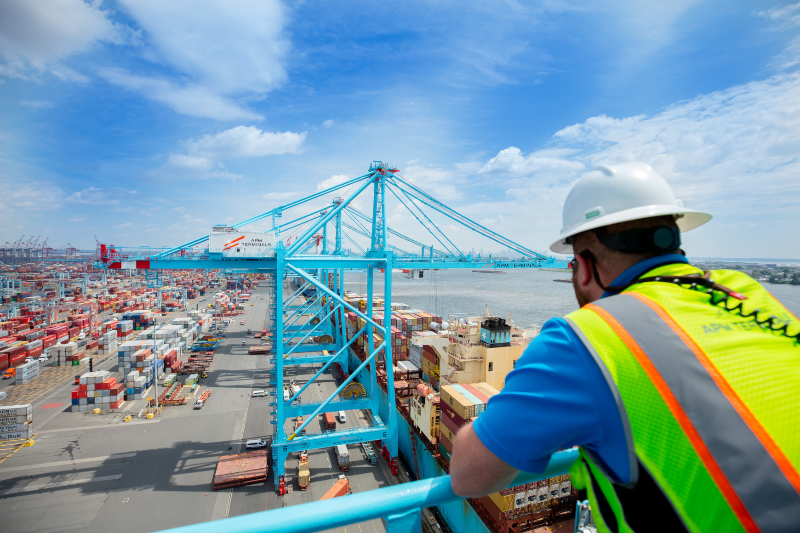
Dutch container terminal operator APM Terminals has initiated the global launch of its new advanced application monitoring solution that can identify issues before they affect operations.
Designed to ensure applications run steadily at their designated speed, the solution improves terminal efficiency and business stability, while also maintaining consistency of peak moves per hour.
APM Terminals global capability manager David Pickup said: “This industry-first provides the same level of service normally only provided by advanced IT companies to their customers.”
APM Terminals’ TOS Support teams and Global Core Capability Centre (GC3) have developed the solution based on Riverbed and Elastic technologies.
The new monitoring tool tracks end-to-end performance such as application architecture, code, servers, databases, disk space, user endpoints, and more.
The data is transferred into a central dashboard that Maersk global Command & Control Center in the UK and the GC3 support team controls round-the-clock.

US Tariffs are shifting - will you react or anticipate?
Don’t let policy changes catch you off guard. Stay proactive with real-time data and expert analysis.
By GlobalDataPickup added: “The dashboard operates using a simple traffic light system. Green means that no issues are detected. Amber flags have the potential to impact the business.
“Our goal is to fix these before they turn to red flags. Red flags indicate that the issue is probably already impacting our operations.
“This new solution enables us to identify any issues before the end-user even notices that something is not working as it should.”
The solution leverages machine learning to improve accuracy and to avoid false alarms caused by fixed parameters.
Explaining the issue, Pickup said that under a simple operating parameter, the system flags a potential issue when it receives 150-550 messages.
Seasonal fluctuations, sudden terminal closures on weekends or national holidays or differences between the size of terminals could cause numerous false alarms.
Pickup concluded: “Instead of having fixed parameters, machine learning adapts to these to become more accurate and reliable in identifying real issues.”
Once the new monitoring solution spots an incident at one terminal, APM Terminals can quickly evaluate whether it will affect another terminal and take the remedial measures to avoid reoccurrence of the issue.
By the end of the year, the monitoring solution will be implemented at 11 terminals. The deployment at all terminals is scheduled to be finalised in 2020.
In August, APM Terminals Yucatán revealed plans to expand and modernise the Port of Progreso’s container terminal in Yucatan Peninsula, southern Mexico.



